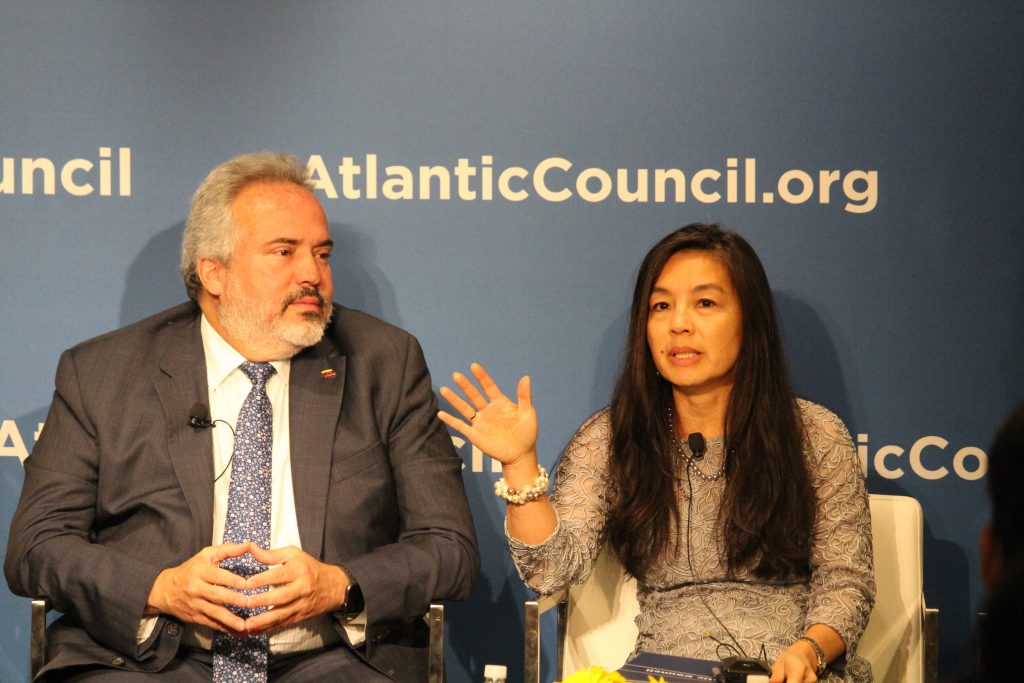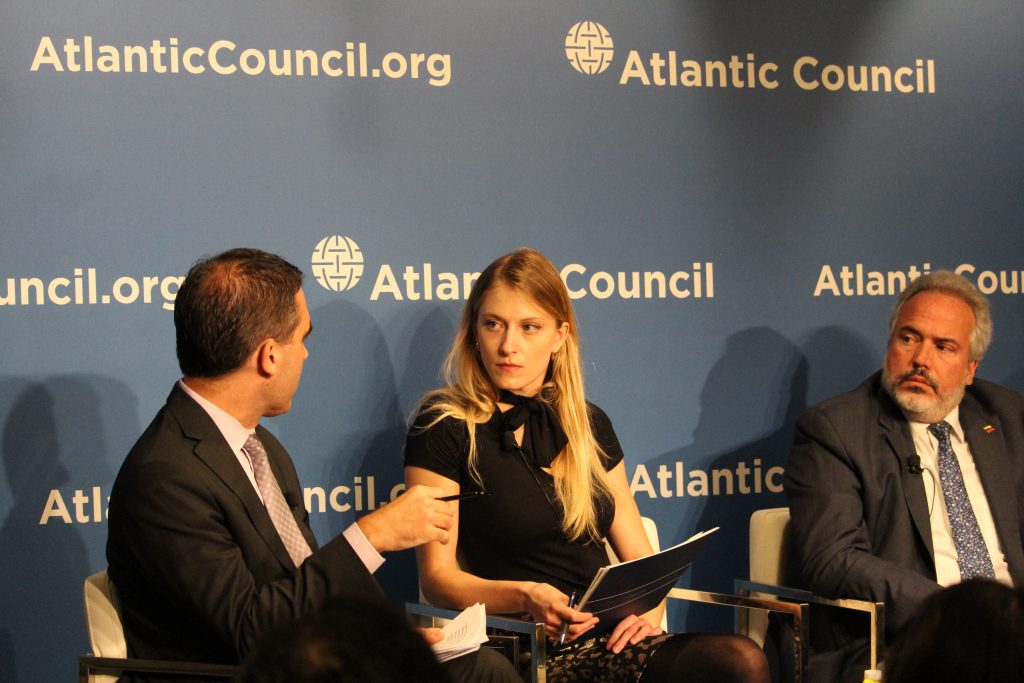China’s extensive presence in the Venezuelan oil sector has significant implications for the country, the region, and the United States, especially as Beijing continues to support the Maduro regime. On October 22, the Atlantic Council’s Adrienne Arsht Latin America Center hosted a discussion on the characteristics of China-Venezuela relations and their significance for the future of Venezuela.
Jason Marczak, Director of the Adrienne Arsht Latin America Center, gave welcoming remarks and served as the panel’s moderator. Panel speakers included Francisco Monaldi, Fellow for Latin American Energy Policy at Rice University; Alejandro Grisanti, Director of the Venezuela state-owned oil and natural gas company PDVSA; Carrie Filipetti, Deputy Assistant Secretary for the Bureau of Western Hemisphere Affairs at the US Department of State; and Ann Lee, Adjunct Professor at New York University.

Monaldi explained the origins of Chinese-Venezuelan strategic relations. For China, the world’s largest importer of oil commodities, oil-rich Venezuela made the ideal trade partner. For Venezuela, Chinese loans represented an alternative to other sources of funding—such as the International Monetary Fund and the World Bank—that did not come with the governance requirements from multilateral institutions that Chavez found incompatible with his version of Venezuelan nationalism. Referring to Venezuela’s financial crisis, Monaldi also noted that the Venezuelan government appropriated most Chinese loans directed to PDVSA, failing to “reinvest the money in the capacity to pay back the loans,” a mistake that the Maduro regime is now paying a high price for. The volatility of the Venezuelan economy has recently pushed China to reduce its investment in the country in view of the prospect of regime change.
Building on Monaldi’s assessment, Grisanti blamed the oil production collapse on Maduro’s incompetency. He predicted that production will continue declining until Maduro is out of office and questioned whether China is willing to wait that long, considering how it has slowly been withdrawing from Venezuelan markets. Investments are crucial for the reconstruction plans the interim-President Guaido has prepared for the approaching after-Maduro era, and in that regard Grisanti claimed that “there is room for everyone,” from China to the United States and Russia, to provide financial assistance to Venezuela in the near future.
Filipetti raised the several concerns the United States government holds in regard to China’s support for Maduro as it disregards the will of the Venezuelan people, whose voice was lost amid the latest fraudulent elections. To China’s publicized neutral stance over the Venezuelan crisis, she responded that, “silence in the face of evil is not neutrality [but] complicity.” She appealed to Latin American countries that have developed relations with Beijing to leverage their position to push China away from the Maduro regime and towards a policy of engagement that promotes peace and stability in Venezuela.

Lee’s address gave meaningful insight into China’s position and intentions in Venezuela. She assessed that Xi Jinping’s support for Maduro reflects his fear that what he sees as a violation of sovereignty in Venezuela will lead to the international community’s meddling with Chinese internal affairs, specifically in relation to Taiwan and Hong Kong. Lee emphasized that although Beijing “sees itself in Venezuela” and hopes for the country’s ability to exit the crisis without a change in leadership (as China did), in the eventuality of Maduro’s fall, China will continue to be present in Venezuela and provide humanitarian aid and healthcare to Venezuelans in need.
A conversation with
Francisco Monaldi
Fellow, Latin American Energy Policy
Rice University
Carrie Filipetti
Deputy Assistant Secretary, Bureau of Western Hemisphere Affairs
US Department of State
Alejandro Grisanti
Director
PDVSA
Ann Lee
Adjunct Professor
New York University
Jason Marczak
Director, Adrienne Arsht Latin America Center
Atlantic Council